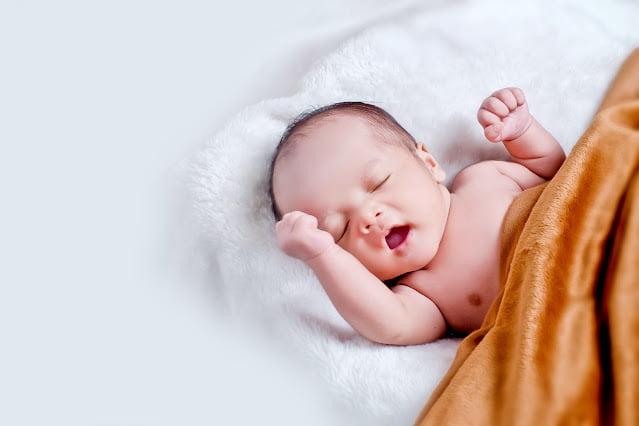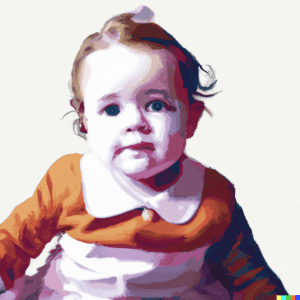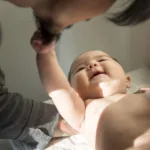Hiccups in newborns are a typical occurrence that many parents may observe. The following list of frequently asked questions and their responses pertains to infant hiccups:
Table of Contents
Why do infants get the hiccups?
The same muscle spasms that cause hiccups in adults also cause them in newborns. The muscle that separates the chest from the belly, or diaphragm, is in charge of breathing. Hiccups in neonates can be brought on by things like overeating, air swallowing, or temperature fluctuations.

Are newborn hiccups typical?
Yes, newborns’ hiccups are entirely natural and cause no concern. They frequently follow feeding and can last anywhere from a few minutes to an hour.
Can a newborn suffer harm from hiccups?
Hiccups don’t hurt a baby, and they don’t even make them uncomfortable. They are merely a reflex the body has in response to specific stimuli.
Is there anything I can do to aid my baby who has hiccups?
While hiccups are natural and safe, you can help your infant stop hiccupping by doing the following:
Burp your infant after each feeding to get rid of any traped air.
Feeding your infant while they are calm and not overly hungry might help prevent them from swalowing too much air.
Maintain a peaceful and pleasant environment for your infant.

Should I be worried if my infant constantly hiccups?
The frequent hiccups your infant experiences are nothing to worry about. However, it is essential to speak with your pediatrician if your infant is having problems eating or seems to be in distress.
Hiccups in newborns are a common reaction that can be brought on by a number of things, including overeating, air swallowing, and temperature fluctuations. They can be halted by burping your infant after feedings, keeping the surroundings calm and comfy for your kid. They do not hurt or create discomfort. Consult your pediatrician if you have any questions concerning your infant’s hiccups.
Infants’ hiccups could also indicate reflux. With gastroesophageal reflux (GER), stomach contents can leak back into the esophagus because the muscle at the end of the esophagus doesn’t seal completely. Hiccups are a sign of this and can make a newborn regularly spit up or vomit.
It’s crucial to consult your pediatrician if your kid is experiencing regular hiccups as well as frequent spitting up or vomiting. To assist control the reflux, they may recommend certain lifestyle modifications, like as keeping your infant upright for 30 minutes following feedings, or they may prescribe medication.
Another thing to remember is that infant hiccups can be a sign of overfeeding, so pay attention to your baby’s feeding cues and don’t press them to complete a bottle if they appear full.
It’s also worth noting that some research suggests that hiccups in newborns may aid in the development of the nervous system by asisting in the cordination of the diaphragm and the phrnic nerve, which controls diaphrgm movement. As a result, hiccups might be seen as a postive indicator of your baby’s nervous system’s correct growth.
In conclusion, infant hiccups are typical and harmless, but it’s critical to be cautious of additional symptoms that could signal reflux or overfeeding. Always consult your pediatrician if you have any concerns.








